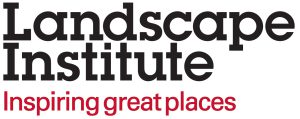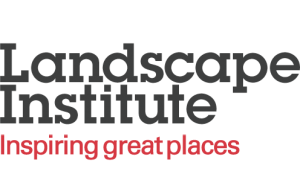LI Independent Review

About the Independent Review
The Board of Trustees commissioned an Independent Review in 2020-21 in relation to a number of issues including governance, member behaviour, and ensuring that the LI was fit for the future. Completed towards the end of 2020, the review involved consultation with a wide range of individuals across the LI. The report and Board response were published on the LI website in February 2021.
To implement the recommendations of the report, the LI has set up an Independent Review Implementation Steering Group (IRISG), reporting to the Board of Trustees and meeting monthly. The Steering Group is overseeing the activity of five working groups, each of which is contributing to two key priorities:
- Phase 1: Delivering an Early Action Programme in summer 2021 to identify priority actions and ‘quick wins’
- Phase 2: Shaping a two-year Main Change Programme to implement the recommendations of the Independent Review in full
Stay up to date and get involved
The implementation of the independent review will be an open and iterative process, in which we hope to involve as many members as possible.
The Steering Group will be providing regular updates throughout 2021 and 2022. The first progress update will be in late August 2021.
Click here to subscribe to progress updates. You can also find out more about each of the workstreams below. There is a comment form for each of the five workstreams – if you have any constructive suggestions or feedback not already covered in the independent review, please share them!
Workstream 1
Improving strategic delivery through a change programme
Purpose
To implement a change programme to ensure that the organisation is fit for purpose for a long time to come.
Main objectives
-
A review of the process for policy development and advocacy, and communication of technical advice
-
Review the LI’s external engagement strategy
-
Produce a three-year strategy for financial robustness and feasibility with planned resources
-
Understand members and potential members better through surveys, segmentation and greater engagement
 About the convenor
About the convenor
Annie Coombs BA (Hons) MA MSc FLI
Annie has plenty of diverse experience, having held a number of roles in her professional career and at the LI.
A respected and active member, Annie has collaborated with many members during her 25-year involvement with the LI. Her impartial but inquisitive nature makes her an ideal working group convenor.
Annie’s keen advocacy of strong working relations between LI volunteers and staff will be of tremendous benefit when it comes to implementing the recommendations of the Independent Review, many of which hinge on improving these relationships.
Workstream 2
Leadership
Purpose
To ensure that the LI’s leadership, including the Board of Trustees, Advisory Council, and senior staff team, have the right support, training and structure to deliver genuine oversight and fulfill their obligations effectively.
Main objectives
-
Provide the Board with effective staff support
-
Ensure regular training and development for Board members and key officers, the CEO, and the senior staff team
-
Support better collaboration between the Board and sub-committees
-
Support better collaboration between the Board and the CEO and senior staff team
-
Ensure all required policies are in place, appropriately monitor risks, and support transparency of governance
 About the convenor
About the convenor
Mary O’Connor DipLA (Glos) MSc PIEMA (ret’d) FLI
Mary is an experienced member of the LI, and was recently a member of the steering group for the Independent Review. As a former honorary secretary, trustee and council member, and Fellow of the Landscape Institute, she has an excellent understanding of the issues and tensions around non-executive and executive leadership.
As the recent representative for Wales on Advisory Council and an active branch member, Mary also has a good understanding of the policy and political environment in relation to the devolved nations. Mary will bring a strong, intelligent, evidenced-based approach to her role as convenor, and will be keen to balance the different perspectives of the group members.
Workstream 3
A better working environment for staff, volunteers and members
Purpose
To improve the working environment for LI members, staff and volunteers by reviewing disciplinary arrangements, focusing on the needs of volunteers, and setting targets around staff, member and volunteer satisfaction
Main objectives
-
Refresh our disciplinary processes and panel, as well as the LI Code of Conduct, to ensure appropriate management of poor member behaviour
-
Adopt new volunteering policies to better support and recognise our volunteers
-
Set targets for staff, member and volunteer satisfaction and build these into Board reporting and the CEO’s objectives
-
Enable 360-degree feedback on the CEO’s performance
-
Implement and enforce a whistleblowing policy
 About the convenor
About the convenor
Ruth Shelton, landscape consultant
Through supporting the LI in the past, Ruth has shown strong commitment and professionalism and as sharp an eye for detail as for strategic thinking and problem solving.
Ruth gained CMLI status in 2005. She has a keen interest in the LI’s governance review, and is involved in LI governance as the LI South East branch representative.
Ruth’s expertise extends outside landscape and governance: her other profession is optometry, and she has served as Chair of the Oxfordshire Local Optometric Committee. Ruth has undertaken project management certification and is organised and focused.
Ruth’s astuteness to process but also openness to innovation makes her ideal as a working group convenor. She will ensure the LI takes modern, flexible and appropriate action to benefit all people involved with the LI, and make our working environment better and fit for the future.
Workstream 4
Adjustments to governance arrangements
Purpose
To review current governance arrangements, facilitating robust recruitment and management processes and structures to deliver effective and transparent oversight.
Main objectives
-
Draw up proposals for discussion with Advisory Council and approval by the LI Board of Trustees
-
Review the elections process for key officer roles
-
Implement robust process for identifying and filling skills gaps – particularly with lay member recruitment
-
Establish a regulatory sub-committee
 About the convenor
About the convenor
Kate Bailey CMLI MRTPI (ret’d)
As chair of our Policy and Communications Committee, Kate has been on the LI Board of Trustees for several years, and has always been a strong voice for a positive and courteous working culture, a proper respect for diversity, and sound and transparent organisational governance. She was the originator of the LI’s Working Together policy, and was heavily involved from the outset in the governance review to modernise our ways of working.
Workstream 5
Improve resource and operational management
Purpose
To improve the day-to-day management and operational delivery of the LI by assessing current processes and procedures for future improvement; identifying and mitigating risk areas; and ensuring accountability and responsibility within senior team.
Main objectives
-
Review and audit financial practices and recommend improvements
-
Review and audit IT and digital developments and recommend improvements
-
Appoint key Head of Finance and Head of HR roles
-
Review skills and job roles within the staff team for parity and suitability
-
Ensure the CEO remains focussed on, and accountable for, operational improvements
 About the convenor
About the convenor
Jane Swift, interim CEO
Having worked as a COO in previous roles, Jane brings a wealth of operational experience to this group at a critical time for the LI. She is a qualified accountant with good organisational skills, and has a good appreciation of the LI’s specific HR requirements and challenges.
Jane will lead this team to review resource and operational management within the LI.
Documents
FAQs
How is the LI governed?
The LI is both a charity and a professional membership organisation. Three separate documents govern the Institute: our Royal Charter, our (recently updated) By-Laws, and our Regulations.
Our Royal Charter, granted over two decades ago, outlines our charitable objectives. In brief, these are:
- to protect, conserve and enhance the natural and built environment for the benefit of people, place and nature;
- to share knowledge relating to landscape architecture, and promote landscape research and education; and
- to ensure high standards of knowledge, competence and conduct for those who practice landscape architecture.
At the top of the LI governance structure is the Board of Trustees. The Board are the ‘decision-makers’, and are legally responsible for the charity’s operation. They take advice from member groups, including Advisory Council, and delegate some responsibilities to three Standing Committees.
What are the timeframes for delivery of the recommendations?
The working groups will focus on two key priorities:
- Delivering an Early Action Programme for priorities and ‘quick wins’ (July 2021)
- Shaping and planning the two-year Main Change Programme
How were the working group convenors appointed?
The Steering Group appointed convenors for each working group according to the following desired characteristics:
- Good track record getting things delivered on time
- An impartial nature – can see all sides, thoughts and ideas
- Good listening, analytic and prioritising skills
- Long and diverse experience
- Good leadership style when working with working group etc
- Transparent and trustful
- Positive and progressive nature
- Member of the LI (CMLI or FLI)



 About the convenor
About the convenor



